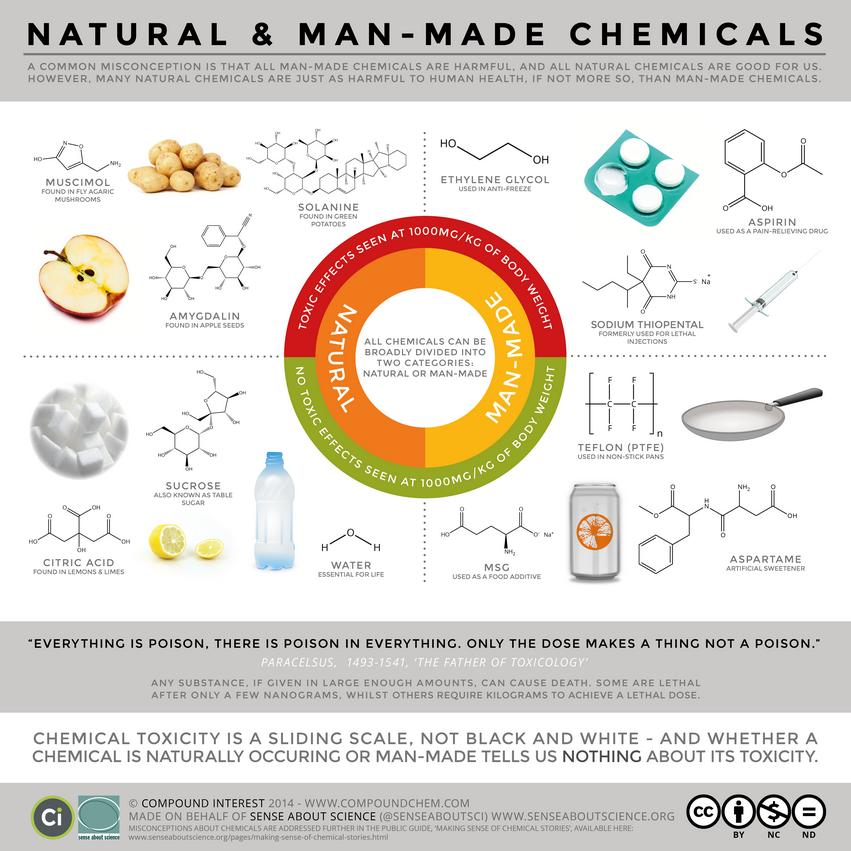If there were ever a guide to help put to bed the all-too-common myths about chemicals in our daily lives, this might just be it.
Making Sense of Chemical Stories, re-published in May by Sense About Science with support from the Royal Society of Chemistry, culls from the opinion of nearly two dozen independent scientists. And they all seem to agree on three important points: chemistry is part of our everyday life – and an important one at that; myths about chemistry’s impact on health and the environment are overblown; and that a “fear itself” of chemicals could have a more adverse impact on society than a single alleged substance, natural or man-made, present in amounts that are sometimes no greater than a grain of sugar in an Olympic swimming pool.
Mark Lorch, science blogger and senior lecturer in chemistry at the University of Hull, praised the guide in The Guardian, noting the need for such a document to enter into mainstream media where much of the conversation seems to be dominated by anyone other than the chemistry community:
The point is that every time anti-chemical slogans are used people are being misinformed. The implication is always that the terms “chemical” and “poison” are interchangeable. . . . As a result of this common usage of “chemicals” the whole subject has been tainted with unpleasant connotations. And while physics and biology have their celebrity scientists extolling the wonders of bosons, bugs and big bangs, chemists are left floundering in their wake or are left completely unrepresented in the mainstream media… .
The easy-to-read, 16-page myth-busting guide gets straight to the point, identifying six of the “more serious misconceptions” around chemicals and suggesting straightforward ways for consumers to get around them. [Note: The below information is quoted directly from the table of contents; we highly recommend you read the guide in its entirety.]
Misconception 1: You can lead a chemical-free life
The chemical reality is that you cannot lead a chemical-free life, because everything is made of chemicals. Chemicals are substances and chemistry is the science of substances – their structure, their properties and the reactions which change them into other substances. Claims that products are “chemical free” are untrue. There are no alternatives to chemicals, just choices about which chemicals to use and how they are made.
Misconception 2: Man-made chemicals are inherently dangerous
The chemical reality is that whether a substance is manufactured by people, copied from nature, or extracted directly from nature, tells us nothing much at all about its properties. In terms of chemical safety, “industrial”, “synthetic”, “artificial” and “man-made” do not necessarily mean damaging and “natural” does not necessarily mean better.
Misconception 3: Synthetic chemicals are causing many cancers and other diseases
The chemical reality is that many of the claims about chemicals being ‘linked’ to diseases simply tell us that a chemical was present when an effect occurred, rather than showing that the chemical causes the effect. Caution is needed in reporting apparent correlations: it is in the nature of scientific experiments that many disappear when a further test is done or they turn out to be explained in other ways.
Misconception 4: Our exposure to a cocktail of chemicals is a ticking time-bomb
The chemical reality is that, although the language of “cocktails” and “time bombs” is alarming, neither the presence of chemicals nor the bioaccumulation of them, in themselves, mean that harm is being done. We have always been exposed to many different substances, because nature is a “cocktail of chemicals”. Modern technology enables us to detect minuscule amounts of substances, but the presence of such a small amount of a specific substance does not mean that it is having any discernible effect on us or on future generations.
Misconception 5: It is beneficial to avoid man-made chemicals
The chemical reality is that, insofar as there is a ‘need’ for anything, synthesised and man-made chemicals have given societies choices beyond measure about what they are exposed to and the problems they can solve.
Misconception 6: We are subjects in an unregulated, uncontrolled experiment
The chemical reality is that there is an extensive regulatory system that strictly controls what chemicals can be introduced: what experiments can take place, what can be used, for which purpose and how they should be transported, used and disposed of.
We should add to that last point: particularly in the U.S., more than a dozen federal laws govern the safe manufacture and use of chemicals, and no new chemical may be manufactured commercially without EPA approval.
If you found this report’s content informative, we encourage you to help put these common myths to bed by clicking one of the share buttons below.
Above: Dr. Joe Schwarcz of McGill University’s Office for Science and Society gives a TEDx talk on the importance of skepticism in science – and why chemistry is unfairly given a bad rap in popular culture. You can find more of his work at the blog Chemically Speaking.






